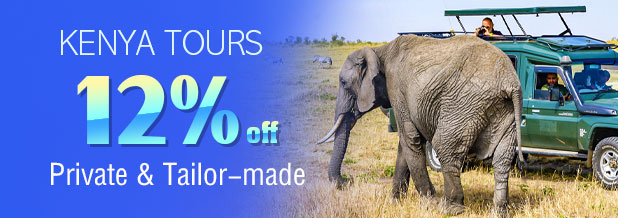Kenya Travel Tips
Visa
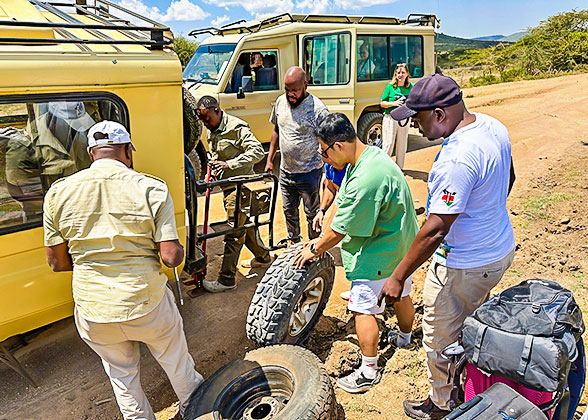
Tire Changing on the Safari
|
At present, Citizens from 42 countries like America, UK, Australia, and Malaysia can enter Kenya with no visa. For travelers from 144 other countries, an e-Visa can be applied on the official website before the trip. The length of stay for this kind of visa can be 90 days. And applying for a visa on arrival is also allowed. Another kind of visa is East African visa, which allows travelers to stay up to 90 days in East Africa Countries, including Kenya.
Money & Cost
The legal currency in Kenya is Kenyan shilling (KES). Cash is needed for the payment of Safari, and it is used in the proceeding of Safari. Only hotels with bigger scales accept credit cards. You can exchange for the currency in banks conveniently. If you exchange it in hotel, it will cost you more. USD is also accepted in Kenya, but they only accept the cash of USD printed before the year of 2000.
The sum of tips varies according to the quality of service. Generally, it is suggested to give 10~20 USD to your tour guide per day.
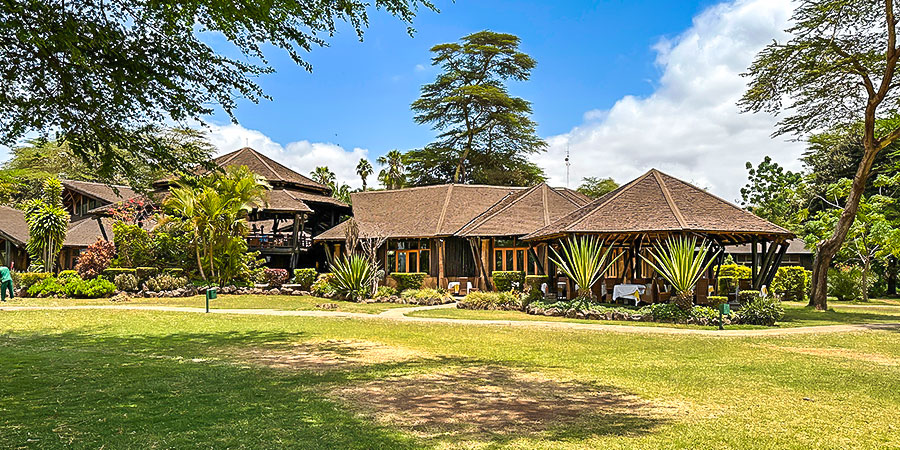
Luxury Ol Tukai Lodge Amboseli
|
Accommodation
There are different kinds of accommodation choices in Kenya, like Youth Hostel, hotels of five stars, tent in wilderness, and a beach house, etc. If you are longing to camp in a comfortable environment, the tent camping is suitable for you. The facilities in the camp are complete. You can enjoy the landscape with abandon. Hotels in Kenya differ a lot. Some are old and simple, some are delicate. From apartment in cities to houses by the sea, they all have complete facilities. The accommodation costs also vary and it is much higher if you live in Nairobi or by the sea.
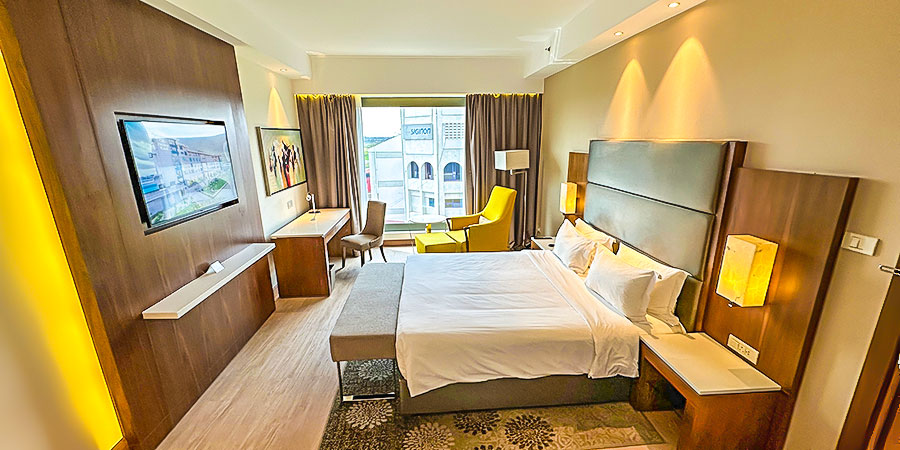
Crown Plaza Hotel, Nairobi
|
Health and Medicare
The sanitary condition of Kenya is better compared with many other African countries. Before traveling, you’d better prepared some common used drugs, like mosquito repellent, anti-motion sickness drug and medicine can fight malaria. You should vaccinate yellow fever vaccine before departure and get the yellow book. The yellow book will be selective examined in Kenya airport.
There are some governmental hospitals and many private hospitals, and those private hospitals are much better. The best two private hospitals are in Nairobi.
Food & Drink
Food in Kenya can be divided into three kinds: The people in southeastern coastal zone prefer seafood. The middle Rift zone dwellers prefer vegetables and fruits. In this area, their main food is corns, potatoes and cassavas, etc. And people in west wilderness like to eat venison.
The water quality in Kenya is not well, thus tap water can’t be drunk directly. It’s better to drink bottled mineral water or purified water.
Recommended Restaurants:
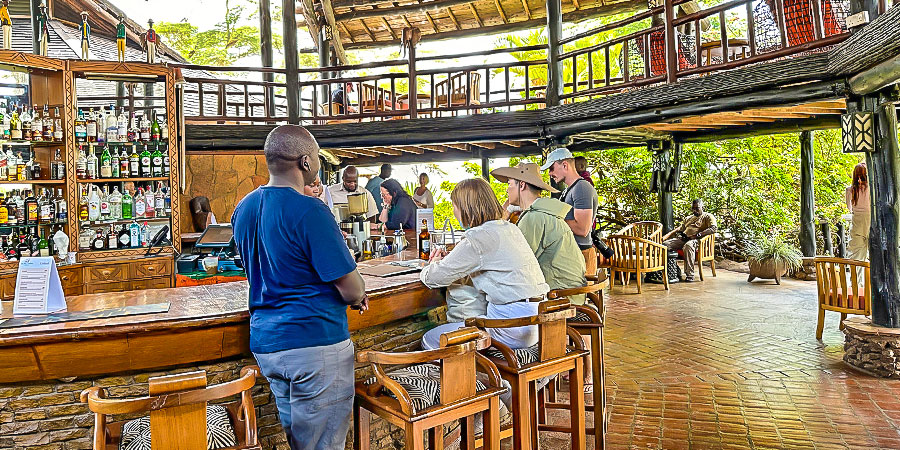
Dining in a Lodge
|
Shopping
Nairobi and Mombasa are the welcomed places to buy souvenirs. There are many special things collected from the whole country. The black tea and coffee in Kenya is famous in the world.
Famous Markets:
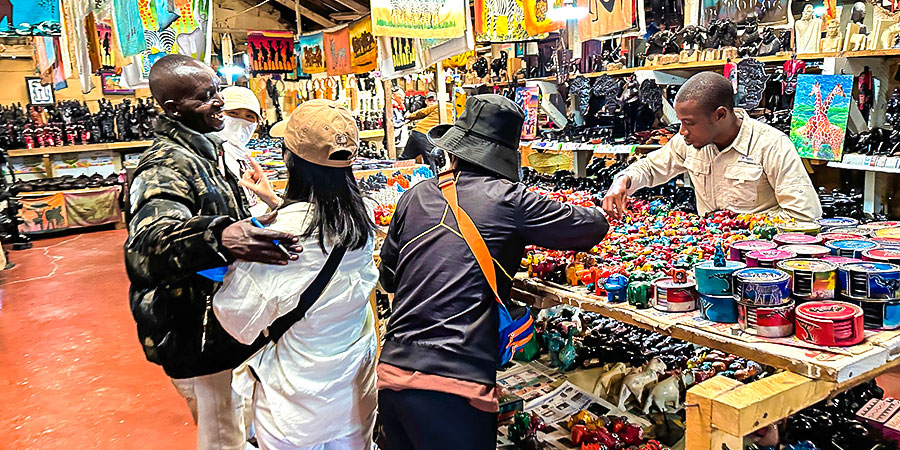
Shopping in the Souvenir Store
|
Holidays and Festivals
During holidays, many shops will be closed. The special holidays are Moi’s Day on Oct.10, Kenyatta’s Day on Oct.20, Boxing Day on Dec.26, Mombasa Carniva and Kenya Music Festival.
Dos and Don’ts
![]() 1. Many Kenyans believe camera will take their soul away, thus take photos with permission.
1. Many Kenyans believe camera will take their soul away, thus take photos with permission.
![]() 2. It would be better to know a little about the Swahili, for Kenyans like their own language more.
2. It would be better to know a little about the Swahili, for Kenyans like their own language more.
![]() 3. Obey the rules of refuges when you are traveling:
3. Obey the rules of refuges when you are traveling:
Keep 3 meters away from the animals when you are watching them;
Don’t scream and clap your hands when you are watching the animals;
Pay attention not to travel cross the border; leave the refuges in schedule time.
![]() 4. Don’t talk about their skin colors.
4. Don’t talk about their skin colors.
![]() 5. Don’t talk about political issues.
5. Don’t talk about political issues.
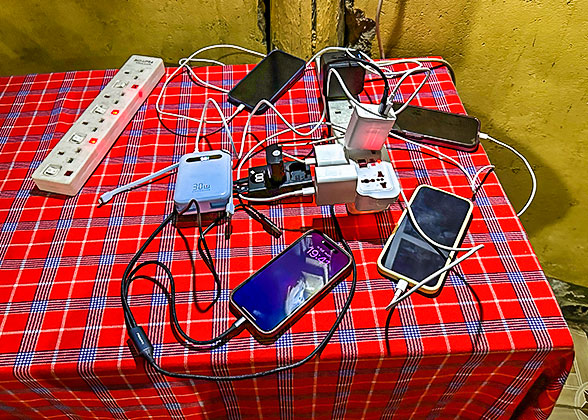
Mobile Phone Recharge in the Camp
|
Power Supply
![]() Power Outlet: British-Standard three-phase plug
Power Outlet: British-Standard three-phase plug
![]() Voltage: 220V/ 240V
Voltage: 220V/ 240V
![]() Frequency: 50Hz
Frequency: 50Hz
![]() Note: Take a plug adapter if needed.
Note: Take a plug adapter if needed.
Telephone and Internet
Wi-Fi is widely covered. Most of star hotels provide free Wi-Fi. You can also rent a mobile router if you want to surf the internet at any time. Kenya has both fixed phone system and mobile phone system. It uses GSM/UMTS/LTE system. The cost of the international call differs in different places. The SIM card can be bought in airport, and the cost varies from 50 KES to 3000 KES. There is another kind of SIM card Safaricom, which can be bought anywhere in Kenya.


